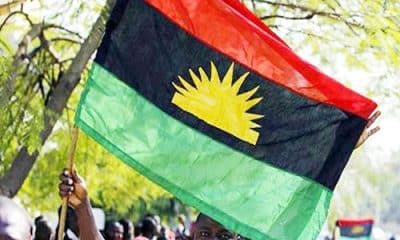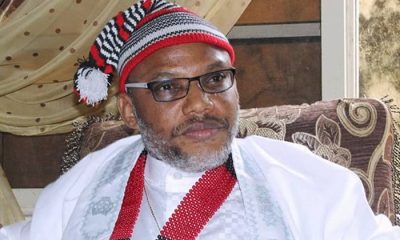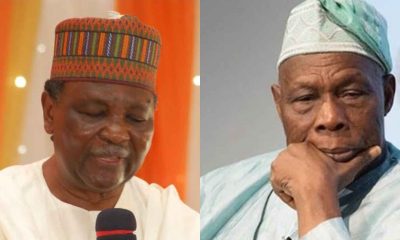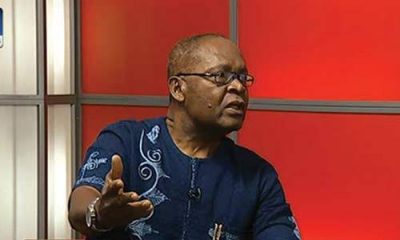Featured
50 Years After The Nigerian Civil War: The Biafra War In Five Dates
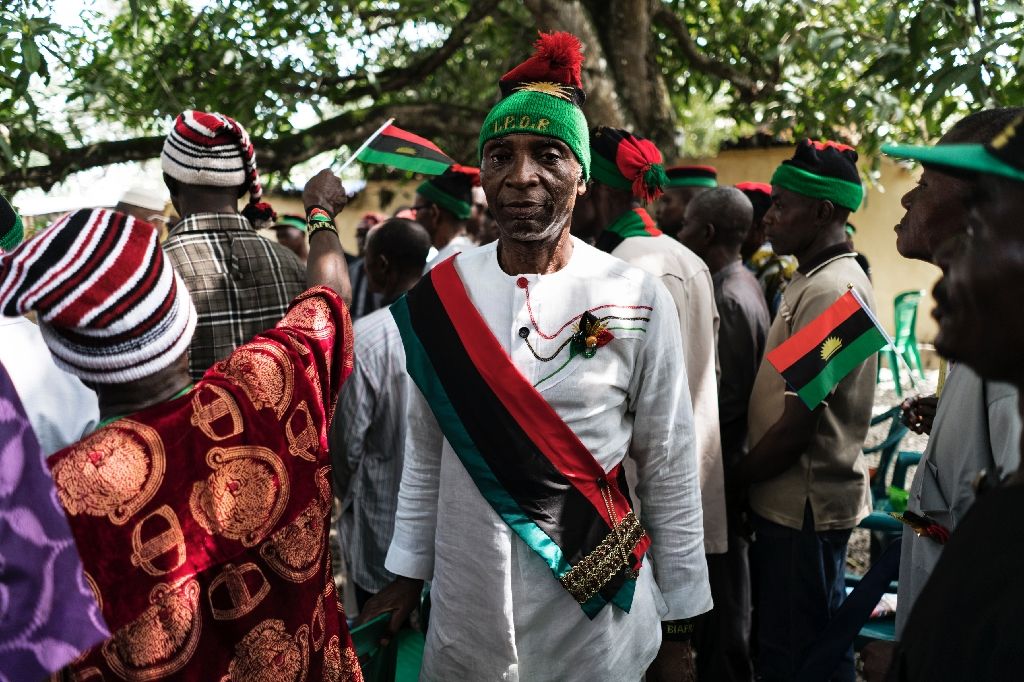
Fifty years ago, on May 30, 1967, Biafra seceded and dragged Nigeria into a terrible civil war whose images marked our collective memory and provoked an unprecedented mobilization of humanitarian associations.
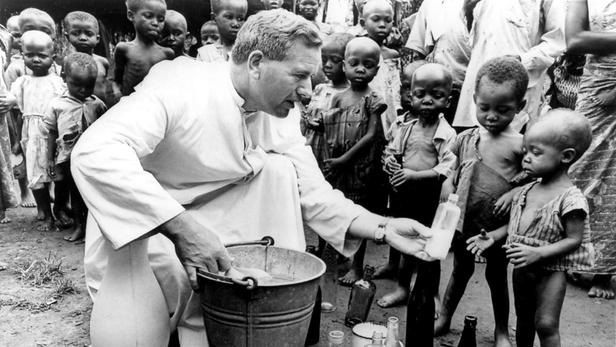
Malnourished children here at Queen Elisabeth Hospital in Umuahia are relentlessly rescued by humanitarian organizations mobilized during the war between Biafra and Nigeria. Rue des Archives / © Rue des Archives / RDA
The “little Biafrans” will forever remain the symbol of famine, humanitarian mobilization and a thorn in the conscience of the West. Hungry for the Nigerian blockade, they are the main victims of a conflict sparked by ethnic and economic rivalries and fueled by foreign countries anxious to maintain their influence.
Back in five dates to a particularly deadly civil war, responsible for the death of one to two million people, the majority of whom were civilians.
January 15, 1966: the coup d’etat of the Igbos
The Nigerian civil war has its roots in the ethnic rivalries that are eating away at an Africa with borders drawn by the colonizing powers. In Nigeria, the Ibos (or Igbos), Catholics from the eastern part of the country which will become Biafra, oppose the populations of the north, Muslims, the Hausa and the Fulanis. On January 15, 1966, six years after independence, General ibo Aguyi Ironsi seized power. Forced unification of the federal state is refused by the North. Riots and then massacres against the Ibos broke out in several cities. On July 29, Ironsi was assassinated in a coup led by General Yakubu Gowon . The hunt for Ibos continues for months: 30,000 of them are murdered, others mutilated.
May 30, 1967: Birth of a State, Biafra
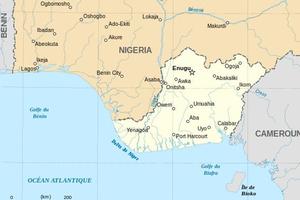
Biafra, in south-eastern Nigeria, represents less than 10% of Nigerian territory. Eric Gaba Wikimedia Commons user: Sting)
Galvanized by the stories of refugees fleeing persecution, ulcerated by the administrative redistribution of the country into twelve federal states which deprives them of their oil resources, the Ibos want to secede. The military governor of the eastern region, Odumegwu Ojukwu proclaimed on May 30, 1967 the independence of the “Republic of Biafra”. Enugu becomes the capital of a country of 14 million inhabitants out of the 55 million of the Nigerian federation.
General Gowon cannot accept to see the oil windfall escape . On July 6, he launched a general offensive. It is the start of a war that will last thirty months.
The Biafran army defends itself successfully the first weeks. It even made a breakthrough to the west, but a few months later the Nigerian forces completely recovered. In October, the capital Enugu fell into the hands of the federal army.
Spring 1968: the Biafra surrounded but armed
One year after its independence, Biafra is completely surrounded having lost with the fall of Port Harcourt its access to the sea. The small republic is then no longer in the press that the “reduced Biafrans”.
How is she still resisting? Diplomatically isolated, it has only been recognized by four African countries: Tanzania, Gabon, Côte d’Ivoire and Zambia. The federal government receives support from the United Kingdom and the United States, which are trying to counter the influence of the USSR. In this game of great powers, the France of General de Gaulle, is on the side of Biafra. Behind the official support, the “Monsieur Afrique” of the Elysée Palace, Jacques Foccart, as RFI reveals , organizes the supply of weapons to the independence fighters. And that is how the conflict got bogged down, bringing with it the death of starving civilians.
Summer 1968: the West discovers famine
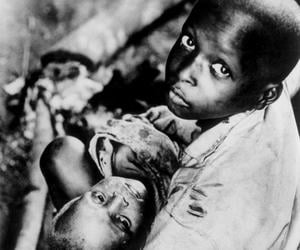
The images of malnourished children here in the Nwanze camp scandalize international opinion.
Since the start of the war, the Gowon government has imposed a total blockade on the secessionist region. Become a “reduced” cut off from the world, the Biafra knows in the summer of 68 an unprecedented famine. The refugee population only receives two meals a week.In August we speak of 6,000 deaths a day. Media images of malnourished children with swollen bellies upset international opinion.
Humanitarian organizations are trying to get around the reluctance of Lagos, which rightly suspects that humanitarian convoys are carrying weapons and mercenaries. “Pirate thefts” are organized to bring food to the dying populations. The International Red Cross, faithful to the principle of neutrality, refuses to do so. It was at this point that a movement emerged led by doctors, including Bernard Kouchner, who advocated humanitarian interference .
January 15, 1970: death of the short-lived Republic of Biafra
At the end of 1969, in December, a general offensive was launched on the last Biafran strongholds which fell one by one. On January 11, Ojukwu fled, leaving the care of his successor Philip Effiong to sign the surrender four days later. General Gowon declares that there is “neither winner nor defeated” and calls for national reconciliation. Biafra is no more.
The conclusion goes to Dr Max Récamier. This doctor, who will be one of the founders of MSF, is one of the few Europeans to have attended the last days of the reduced biafrans. He confides in his return to Le Figaro on February 2, 1970.
Children’s lives have not weighed heavily against reason of state – Dr Max Récamier
When asked about his deep feeling now that the conflict is over, he says he is bitter. Bitter, because the Biafran government could have negotiated earlier and accepted federal autonomy. He adds:
“But my bitterness is different: the result of this war is more than a million and a half dead, including eight tenths of hunger. It is a generation of children from six to ten years old, missing. Another generation from 18 to 23 years old, mutilated. I certainly find an opinion in Paris, excited by the collapse of Biafra. But the war lasted two years!
Oh! of course, we gave money for the little Biafres, we gave ourselves a good conscience. But we didn’t stop them from dying. The voice of public opinion did not make itself heard strongly enough for France, which was represented on both sides, to be able to play its role of mediator. The government helped Biafra, but just enough to prolong the massacre, not enough to save it . Children’s lives have not weighed heavily against reason of state and economic imperatives. “

